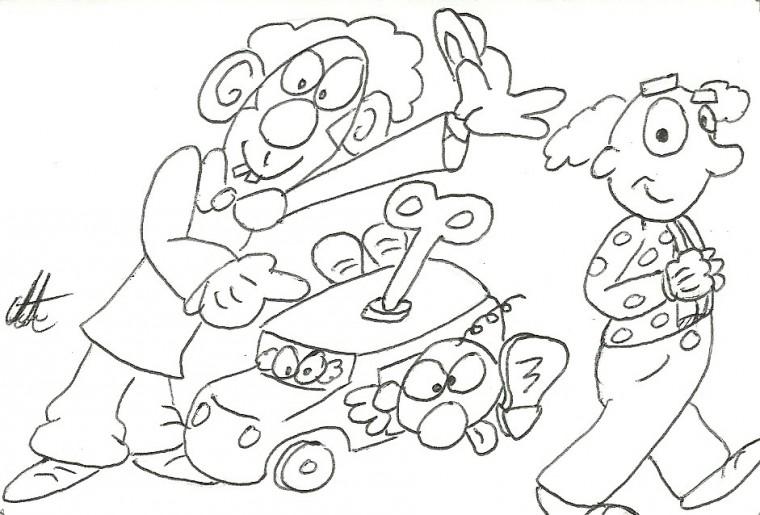
Clowns have the right idea.
Carpooling
The Facts: Carpool permits allow two or more students to exchange their previously purchased commuters’ permits. Currently there are 82 student carpoolers, meaning 41 less cars on campus. Based on current participation there is a total carbon saving of 650 tons per year.
Our Opinion: Carpooling should be encouraged by the Office of Transportation to reduce congestion on campus. The process of getting carpool permits is very confusing and difficult, and transportation needs to simplify the process to make it student-friendly.
Congestion seems to be one of the biggest problems on campus. With an increasing number of cars, there are limited options to reduce congestion. Carpooling is one way of reducing the problem. The Office of Transportation has developed a program to allow parking permit holders to trade in two permits and receive a single carpooling pass. This initiative should be promoted by the Office of Transportation to reduce congestion on campus and increase sustainability.
There could be a tremendous impact from this initiative on campus. Apart from reducing the carbon footprint, it will help transportation to efficiently manage parking spaces, effectively manage traffic and traffic-related congestion on campus and create awareness amongst students about sustainability-related issues.
One of the obstacles in making this initiative a success is the requirement of a carpooling permit. The confusing, tedious process of obtaining a carpooling permit discourages students from using carpools. Most students believe they need parking passes in order to park on campus; however, by communicating carpooling passes as an alternative option, the Office of Transportation could ignite these permits’ popularity, and prove this myth false.
Another glitch in the current process is the requirement to pair up with the same set of people while carpooling. The current process doesn’t offer a chance for students to pair up with other students registered for carpooling. However issuing daily or monthly carpooling passes for individuals allows students to carpool with all the other students registered for carpooling. Social networking websites, like Facebook, customized for the University’s carpooling page could be used effectively to find carpooling partners near your location.
This program would prove to be effective in lowering the congestion on campus, but would also increase our sustainability. The more cars that carpool means the less cars there are on the road. This would decrease the amount of pollution our vehicles emit and would decrease our growing carbon footprint. If red needs to go green, it should benefit students. In this case, the program offers both solutions.
If Transportation wants to make this initiative a success, carpool users could be offered incentives like reserving spaces for them in the parking lots. This will result in more people willing to be a part of this program.
If carpooling is not encouraged, the congestion on campus is going to increase. This will result in a loss of time and energy on the part of individual drives and a driving experience on campus that will be chaotic and disorganized. It seems the Office of Transportation would want student drivers to effectively utilize this new program to decrease the number of vehicles on campus so at the very least they may sell more parking spaces.